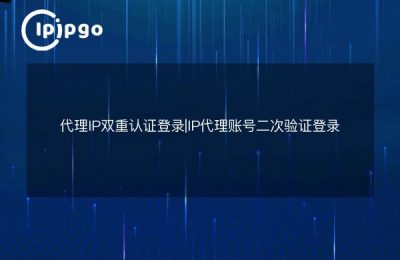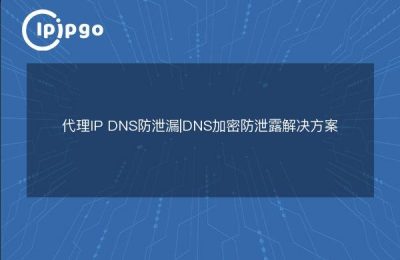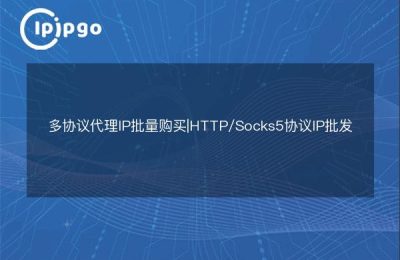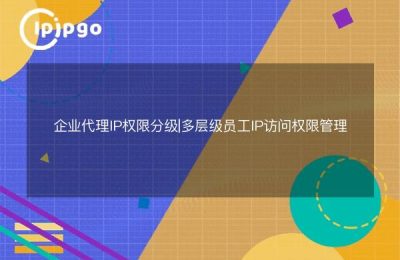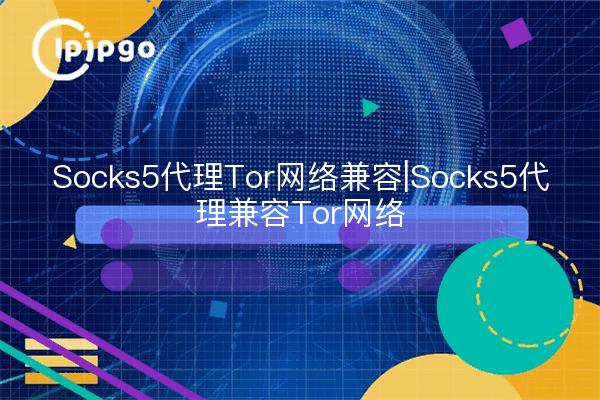
Socks5 proxy compatibility principle with Tor network
Understanding how the Socks5 proxy and the Tor network work together is the key to a compatible setup. socks5, as a transport layer protocol, is able to forward TCP/UDP packets directly, while the Tor network transmits data through multiple node encryption. When accessing Tor through ipipgo's Socks5 proxy, it is equivalent to wrapping the original network request in the outer layer of theDouble anonymity protectionThe first layer is realized by ipipgo's residential IP to hide the real address, and the second layer is completed by Tor's three-hop encryption mechanism to protect the data.
Specific configuration process details
Achieving Tor network compatibility with ipipgo requires a three-step process:
1. In the ipipgo client selectSocks5 protocol mode
2. Obtain connection parameters containing IP address, port, and authentication information
3. Add the following snippet to the Tor client configuration file:
Socks5Proxy 12.34.56.78:1080 Socks5ProxyUsername your_username Socks5ProxyPassword your_password
Note that replacing the ipipgo proxy parameter with the one actually obtained is recommended in preference to theStatic Residential IPtype to maintain connection stability.
Key Parameter Optimization Tips
There are three core parameters that require special attention in the compatibility settings:
| parameter term | recommended value | Description of the role |
|---|---|---|
| timeout setting | ≥ 30 seconds | Adaptation to Tor network latency characteristics |
| IP Type | Residential IP | Circumventing the easy identification of public agents |
| Authentication Methods | Username + Password | Preventing Proxies from Being Stolen by Others |
ipipgo's.Full Protocol SupportThis feature is especially important in this scenario, as its native Socks5 stack avoids the performance loss associated with protocol switching.
Common Troubleshooting Guide
Problem 1: Slow connection to Tor network
- troubleshooting steps: first directly connected to the ipipgo proxy test network speed → check Tor node country settings → replace ipipgo service area
- Recommended program: using ipipgo'sLow Latency Dynamic IP PoolingAutomatic matching of optimal routes
Issue 2: SOCKS5 handshake failure message appears
- Verify that the proxy port is not blocked by the firewall
- Check that the username/password does not contain special characters (it is recommended that it be reset to a pure alphanumeric combination)
- Contact ipipgo technical support for a protocol compatibility test report
Advanced Application Scenarios
Combined with ipipgo'sMulti-entry load balancingfeatures that enable more complex network architectures:
1. Simultaneously configure 3 sets of Socks5 proxies for different regions
2. Setting the Tor client to switch proxy entries automatically
3. Establishment of an IP address rotation mechanism (recommended interval ≥ 30 minutes)
This solution effectively avoids individual IPs being limited or blocked in scenarios that require long-term stable connectivity.
QA Quick Q&A
Q: Why do I have to use a residential IP, and can't I use a data center IP?
A: Residential IPs come from real home network environments and are less likely to be identified as proxy traffic than data center IPs. ipipgo's pool of 90 million+ residential IPs can provide sufficient resources.
Q: Does using proxy and Tor at the same time affect the speed?
A:Reasonable configuration under the delay increase of about 15-30%, it is recommended to choose the ipipgo provide10Gbps high speed channelnodes, the measured transmission rate can be increased by more than 40%.
Q: What should I do if I encounter regional IP restrictions?
A: Through the ipipgo backend of theIntelligent Routing FunctionIt automatically filters the available IPs in the target area and supports accurate positioning in 240+ countries and regions.

